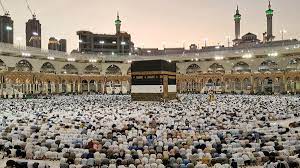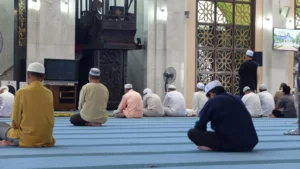
The days on which fasting is not recommended or is prohibited
Ulama Institute #1
Looking to learn Arabic or memorize the Quran?
Check our Trusted Teachers

Voluntary fasting is recommended for every Muslim who wants to get closer to Allah There are however certain days wherein it is not advisable to fast. There are also certain days when a Muslim is forbidden to fast.
Those days wherein it is recommended that a Muslim do not fast are:
Friday – It is not recommended that a Muslim fast on a Friday alone. The Prophet ﷺ said:
” لا تصوموا يوم الجمعة إلا وقبله يوم أو بعده يوم (البخاري ومسلم)
“Do not fast on the day of Jumu’ah unless you fast day before or a day after.” [al-Bukhaani & Muslim]
Saturday – It is disliked to observe fasting on a Friday or Saturday alone. He said,
لا تصوموا يوم السبت إلا فيما أفترض عليكم ” ( أحمد وأبو داود والنسائي وابن ماجة )
“Do not fast on Saturday, except for that which has been made obligatory upon you.” [Aboo Daawood, An-Nasaali and Ibn Maajah]
Last portion of Sha’baan – Muslims are advised not to fast at the end of Sha’baan, especially on the last day which is known as ‘yawm ash-shak’. The Prophet ﷺ said:
“إذا انتصف شعبان فلا تصوموا حتى رمضان (أبو داود والنسائي وابن ماجة )
“When the middle of Sha’baan arrives do not fast.” [Aboo Daawood, An-Nasaai and Ibn Majah)
Ammar Ibn yassir also said:
( الترمذي ) من صام اليوم الذي شك فيه فقد عصى أبا القاسم “
“Whoever fasts on the day of ash-shakk (doubt), has indeed disobeyed Abul-Qasim.” [At-Tirmidh]
There are certain days on which Muslims are forbidden from fasting. They are:
Day of ‘Arafah – As stated in the last lesson it is advisable and of benefit to fast on the day of ‘Arafah. Muslims that are on Hajj and present at ‘Arafah should not fast.
أن رسول الله صلى الله عليه وسلم نهى عن صوم يوم عرفة بعرفة . ( أبو داود )
The Prophet ﷺ prohibited those who were on ‘Arafah to fast on the day of ‘Arafah. [Aboo Daawood]
Sawm al-wisaal – Fasting for more than one day continuously, without breaking the fast in between is known as ‘Sawm al-wisaal. Muslims are not allowed to practice it.
The Prophet ﷺ said:
إياكم والوصال” ( البخاري ومسلم ) .
“Beware of practicing wisaal (continuous fasting).” [Al-Bukhaari and Muslim]
The two Days of ‘Eed and the Days of At-Tashreeq- It is strictly forbidden to fast on the following days:
- 1st of Shawwaal-Day of ‘Eedul-Fitr
- 10th of Dhul Hijjah-Day of ‘Eedul-Adhaa
- 11th, 12th and 13th of Dhul Hijjah – Days of at-Tashreeq.
Aboo Sa’eed Al-Khudri reported,
نهى رسول الله صلى الله عليه وسلم عن صيام يومين : ( الفطر ويوم النحر ) (متفق عليه )
“There are two days that the Messenger of Allah prohibited fasting on: The day of breaking the fast (‘Eedul-Fitr) and the day of the sacrifice.” [Al-Bukhaari and Muslim]
It is also not allowed for a woman to observe voluntary fast without the permission of her husband. The Prophet ﷺ said,
لا تصوم المرأة وبعلها شاهد إلا بإذنه غير رمضان ( أبوداود)
“A woman should not fast (even) one day while her husband is present, except with his permission, unless it is Ramadaan.” [Aboo Daawood]
It is forbidden for a woman who is menstruating or experiencing post-natal bleeding to fast.
Furthermore, a Muslim is prohibited from fasting if he/she is sick and fears that he/she could die from his/her illness, or his/her condition will worsen.
One of the most valuable practices that a Muslim can perform is to observe voluntary fasting (Sawm). It increases spiritual development and gives a Muslim serenity and peace. A Muslim who is able to please Allah ﷻ , will be blessed with a life of contentment, and bliss. However one must be aware of the days on which fasting is not advised or forbidden.







